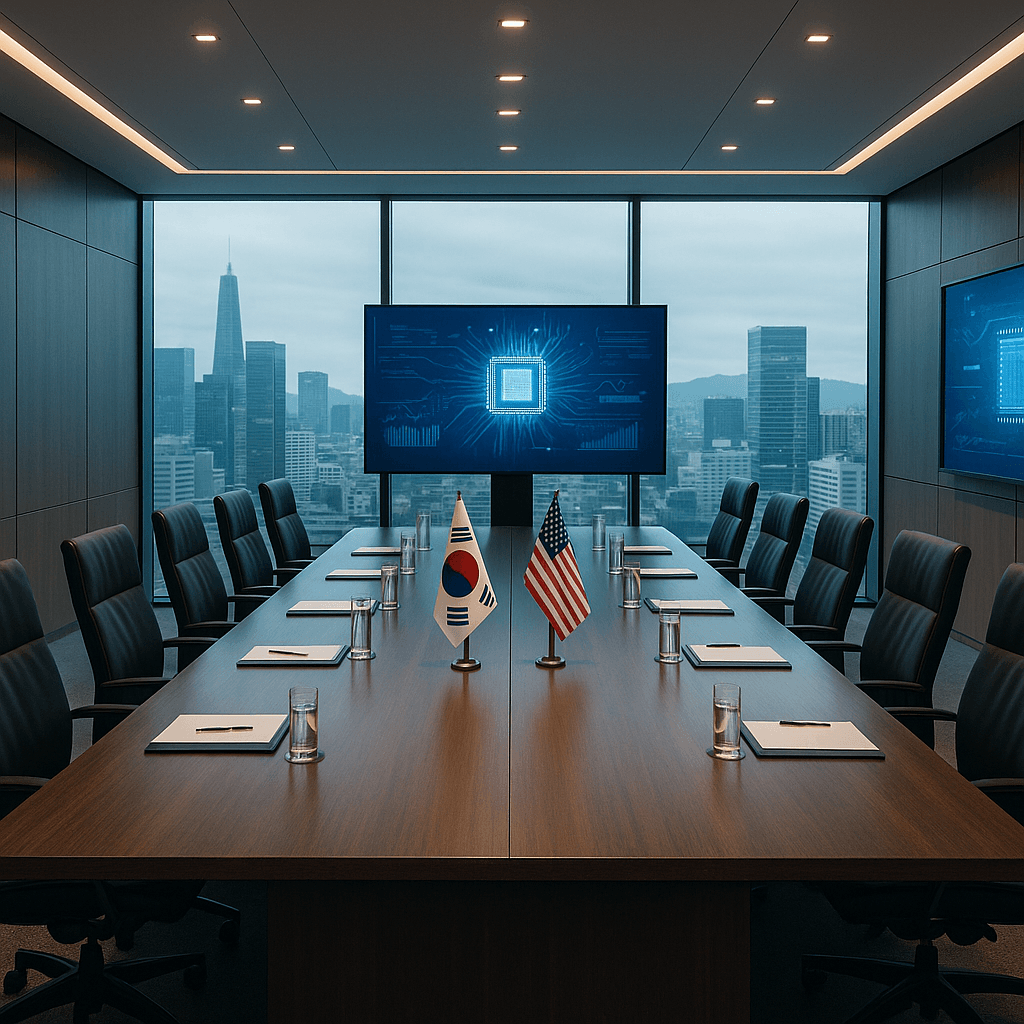Nvidia CEO Jensen Huang is making a strategic trip to South Korea this week, where he's set to meet President Donald Trump alongside executives from Samsung and SK Group. The timing isn't coincidental - it comes as Trump prepares for talks with China's Xi Jinping, potentially putting Nvidia's restricted China market access back on the negotiating table.
Nvidia CEO Jensen Huang just landed in one of the company's most critical markets at a pivotal moment for the AI chip giant. His South Korea visit this week isn't just another executive tour - it's converging with President Trump's planned meeting with China's Xi Jinping, potentially reshaping Nvidia's access to its most lucrative restricted market.
The trip puts Huang at the center of high-stakes geopolitics and business deals. Trump called the CEO "an incredible guy" during Tuesday's APEC Summit speech and confirmed he'll meet with Huang on Wednesday. But it's what happens behind closed doors that could determine Nvidia's next chapter.
South Korea hosts some of Nvidia's most essential partners. SK Hynix develops the high-bandwidth memory (HBM) semiconductors that power Nvidia's AI systems, while Samsung has been struggling to get its own HBM products certified for Nvidia's use. Yonhap reported that Huang will meet SK Group Chairman Chey Tae-won, signaling potential deeper partnerships ahead.
"We're partnering with Samsung and Hyundai in many ways, including investing in AI factories," Huang revealed at Tuesday's developers conference in Washington. These "AI factories" - data centers packed with Nvidia's graphics processing units - represent the infrastructure deals that have become Huang's signature during his global tour this year.
SK Telecom is currently building data centers across South Korea, and Bloomberg sources indicate Nvidia plans to supply chips to SK Group. The meetings could also cover autonomous vehicles and robotics, where South Korean companies like Hyundai are pushing major initiatives.
But the Trump meeting adds a geopolitical dimension that goes far beyond supply chain partnerships. China represents Nvidia's biggest missed opportunity - the company was previously banned from exporting its AI chips there until Trump's administration ended restrictions earlier this year. Even with the relaxed rules, Beijing has reportedly discouraged local firms from buying Nvidia's downgraded H20 chips, pushing them toward domestic alternatives instead.
The stakes couldn't be higher. Being shut out of China has already , and Trump signaled Wednesday that Nvidia's advanced Blackwell processors could be part of his discussions with Xi. The Blackwell chip is Nvidia's most sophisticated product and currently banned from Chinese export.












